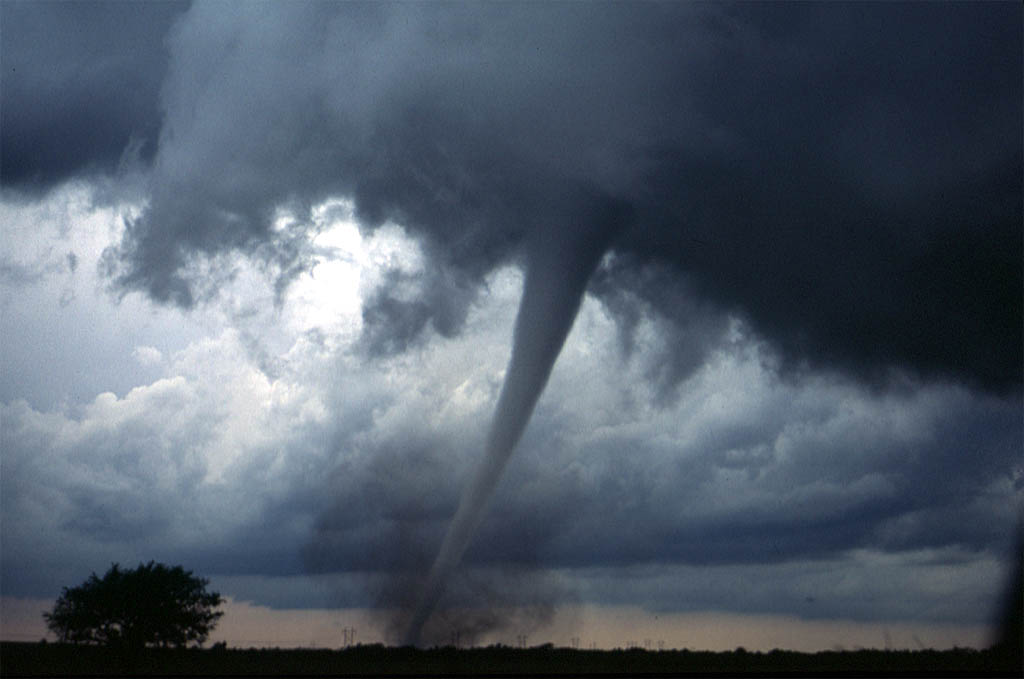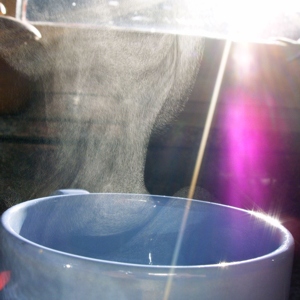|
Extreme Weather
Extreme weather or extreme climate events includes unexpected, unusual, severe, or unseasonal weather; weather at the extremes of the historical distribution—the range that has been seen in the past. Often, extreme events are based on a location's recorded weather history and defined as lying in the most unusual ten percent. The main types of extreme weather include heat waves, cold waves and tropical cyclones. The effects of extreme weather events are seen in rising economic costs, loss of human lives, droughts, floods, landslides and changes in ecosystems. There is evidence to suggest that climate change is increasing the periodicity and intensity of some extreme weather events. Confidence in the attribution of extreme weather and other events to anthropogenic climate change is highest in changes in frequency or magnitude of extreme heat and cold events with some confidence in increases in heavy precipitation and increases in the intensity of droughts. Current evidence and ... [...More Info...] [...Related Items...] OR: [Wikipedia] [Google] [Baidu] |
Humidity
Humidity is the concentration of water vapor present in the air. Water vapor, the gaseous state of water, is generally invisible to the human eye. Humidity indicates the likelihood for precipitation, dew, or fog to be present. Humidity depends on the temperature and pressure of the system of interest. The same amount of water vapor results in higher relative humidity in cool air than warm air. A related parameter is the dew point. The amount of water vapor needed to achieve saturation increases as the temperature increases. As the temperature of a parcel of air decreases it will eventually reach the saturation point without adding or losing water mass. The amount of water vapor contained within a parcel of air can vary significantly. For example, a parcel of air near saturation may contain 28 g of water per cubic metre of air at , but only 8 g of water per cubic metre of air at . Three primary measurements of humidity are widely employed: absolute, relative, and specific. Ab ... [...More Info...] [...Related Items...] OR: [Wikipedia] [Google] [Baidu] |
List Of Disasters In Australia By Death Toll
This is a list of disasters in Australia by death toll. 100 or more deaths 50 to 99 deaths 20 to 49 deaths Between 10 and 20 Gallery Image:Port arthur outside.jpg, The Port Arthur massacre claimed 35 lives in 1996 when Martin Bryant opened fire in the former penal colony. Image:AA Blackhawk A25-218.jpg, Two Australian Army S-70A Blackhawk helicopters, similar to the one pictured, crashed in 1996 near Townsville, killing 18 Australian soldiers. Image:Eureka Stockade.jpg, A memorial stone to some of those who died during the Eureka Stockade in 1854. Image:SkymasterCrashFuselage.PNG, The 1950 Australian National Airways Douglas DC-4 crash claimed 29 lives. Image:SevenMileBeach1946 2.png, The 1946 Australian National Airways DC-3 crash claimed 25 lives. Significant incidents resulting in fewer than 10 deaths Image:2003CanberraBushfires.jpg, The Canberra bushfires of 2003 claimed 4 lives. File:Cardross memorial 2b.jpg, Roadside memorials at Cardross, Victoria, wher ... [...More Info...] [...Related Items...] OR: [Wikipedia] [Google] [Baidu] |
1936 North American Heat Wave
The 1936 North American heat wave was one of the most severe heat waves in the modern history of North America. It took place in the middle of the Great Depression and Dust Bowl of the 1930s and caused catastrophic human suffering and an enormous economic toll. The death toll exceeded 5,000, and huge numbers of crops were destroyed by the heat and lack of moisture. Many state and city record high temperatures set during the 1936 heat wave stood until the summer 2012 North American heat wave. Many more endure to this day; as of 2022, 13 state record high temperatures were set in 1936. The 1936 heat wave followed one of the coldest winters on record. Events The heat wave started in late June, when temperatures across the United States exceeded . The Midwest experienced some of the highest June temperatures on record. Drought conditions worsened. In the Northeast, temperatures climbed to the mid 90s °F (around 35 °C). The South and West started to heat up as well ... [...More Info...] [...Related Items...] OR: [Wikipedia] [Google] [Baidu] |
Air Pollution
Air pollution is the contamination of air due to the presence of substances in the atmosphere that are harmful to the health of humans and other living beings, or cause damage to the climate or to materials. There are many different types of air pollutants, such as gases (including ammonia, carbon monoxide, sulfur dioxide, nitrous oxides, methane, carbon dioxide and chlorofluorocarbons), particulates (both organic and inorganic), and biological molecules. Air pollution can cause diseases, allergies, and even death to humans; it can also cause harm to other living organisms such as animals and food crops, and may damage the natural environment (for example, climate change, ozone depletion or habitat degradation) or built environment (for example, acid rain). Air pollution can be caused by both human activities and natural phenomena. Air pollution is a significant risk factor for a number of pollution-related diseases, including respiratory infections, heart disease, COPD ... [...More Info...] [...Related Items...] OR: [Wikipedia] [Google] [Baidu] |
University Of York
, mottoeng = On the threshold of wisdom , established = , type = Public research university , endowment = £8.0 million , budget = £403.6 million , chancellor = Heather Melville , vice_chancellor = Charlie Jeffery , students = () , undergrad = () , postgrad = () , city = Heslington, York , country = England , campus = Heslington West, Heslington East, and King's Manor , colours = Dark blue and dark green , website = , logo = UoY_logo_with_shield_2016.png , logo_size = 250px , administrative_staff = 3,091 , affiliations = The University of York (abbreviated as or ''York'' for post-nominals) is a collegiate research university, located in the city of York, England. Established in 1963, the university has expanded to more than thirty departments and centres, covering a wide range of subjects. Situated to the south-east of the city of York, the university campus is about in size. The original campus, Campus West, incorporates the York Scien ... [...More Info...] [...Related Items...] OR: [Wikipedia] [Google] [Baidu] |
Stomata
In botany, a stoma (from Greek ''στόμα'', "mouth", plural "stomata"), also called a stomate (plural "stomates"), is a pore found in the epidermis of leaves, stems, and other organs, that controls the rate of gas exchange. The pore is bordered by a pair of specialized parenchyma cells known as guard cells that are responsible for regulating the size of the stomatal opening. The term is usually used collectively to refer to the entire stomatal complex, consisting of the paired guard cells and the pore itself, which is referred to as the stomatal aperture. Air, containing oxygen, which is used in respiration, and carbon dioxide, which is used in photosynthesis, passes through stomata by gaseous diffusion. Water vapour diffuses through the stomata into the atmosphere in a process called transpiration. Stomata are present in the sporophyte generation of all land plant groups except liverworts. In vascular plants the number, size and distribution of stomata varies widely. ... [...More Info...] [...Related Items...] OR: [Wikipedia] [Google] [Baidu] |
Evaporation
Evaporation is a type of vaporization that occurs on the surface of a liquid as it changes into the gas phase. High concentration of the evaporating substance in the surrounding gas significantly slows down evaporation, such as when humidity affects rate of evaporation of water. When the molecules of the liquid collide, they transfer energy to each other based on how they collide. When a molecule near the surface absorbs enough energy to overcome the vapor pressure, it will escape and enter the surrounding air as a gas. When evaporation occurs, the energy removed from the vaporized liquid will reduce the temperature of the liquid, resulting in evaporative cooling. On average, only a fraction of the molecules in a liquid have enough heat energy to escape from the liquid. The evaporation will continue until an equilibrium is reached when the evaporation of the liquid is equal to its condensation. In an enclosed environment, a liquid will evaporate until the surrounding air is ... [...More Info...] [...Related Items...] OR: [Wikipedia] [Google] [Baidu] |
Agriculture
Agriculture or farming is the practice of cultivating plants and livestock. Agriculture was the key development in the rise of sedentary human civilization, whereby farming of domesticated species created food surpluses that enabled people to live in cities. The history of agriculture began thousands of years ago. After gathering wild grains beginning at least 105,000 years ago, nascent farmers began to plant them around 11,500 years ago. Sheep, goats, pigs and cattle were domesticated over 10,000 years ago. Plants were independently cultivated in at least 11 regions of the world. Industrial agriculture based on large-scale monoculture in the twentieth century came to dominate agricultural output, though about 2 billion people still depended on subsistence agriculture. The major agricultural products can be broadly grouped into foods, fibers, fuels, and raw materials (such as rubber). Food classes include cereals (grains), vegetables, fruits, cooking oils, meat, milk, ... [...More Info...] [...Related Items...] OR: [Wikipedia] [Google] [Baidu] |
Heat Stroke
Heat stroke or heatstroke, also known as sun stroke, is a severe heat illness that results in a body temperature greater than , along with red skin, headache, dizziness, and confusion. Sweating is generally present in exertional heatstroke, but not in classic heatstroke. The start of heat stroke can be sudden or gradual. Heatstroke is a life-threatening condition due to the potential for multi-organ dysfunction, with typical complications including seizures, rhabdomyolysis, or kidney failure. Heat stroke occurs because of high external temperatures and/or physical exertion. It usually occurs under preventable prolonged exposure to extreme environmental or exertional heat. However, certain health conditions can increase the risk of heat stroke, and patients, especially children, with certain genetic predispositions are vulnerable to heatstroke under relatively mild conditions. Preventive measures include drinking sufficient fluids and avoiding excessive heat. Treatment is ... [...More Info...] [...Related Items...] OR: [Wikipedia] [Google] [Baidu] |
Heat Expansion
Thermal expansion is the tendency of matter to change its shape, area, volume, and density in response to a change in temperature, usually not including phase transitions. Temperature is a monotonic function of the average molecular kinetic energy of a substance. When a substance is heated, molecules begin to vibrate and move more, usually creating more distance between themselves. Substances which contract with increasing temperature are unusual, and only occur within limited temperature ranges (see examples below). The relative expansion (also called strain) divided by the change in temperature is called the material's coefficient of linear thermal expansion and generally varies with temperature. As energy in particles increases, they start moving faster and faster weakening the intermolecular forces between them, therefore expanding the substance. Overview Predicting expansion If an equation of state is available, it can be used to predict the values of the thermal expan ... [...More Info...] [...Related Items...] OR: [Wikipedia] [Google] [Baidu] |
Heat Cramps
Heat cramps, a type of heat illness, are muscle spasms that result from loss of large amount of salt and water through exercise. Heat cramps are associated with cramping in the abdomen, arms and calves. This can be caused by inadequate consumption of fluids or electrolytes. Auerbach Paul S Wilderness Medicine. 4th ed. St. Louis, Mo: Mosby; 2001:240-316. Heavy sweating causes heat cramps, especially when the water is replaced without also replacing salt or potassium. Although heat cramps can be quite painful, they usually don't result in permanent damage, though they can be a symptom of heat stroke or heat exhaustion. Heat cramps can indicate a more severe problem in someone with heart disease or if they last for longer than an hour. In order to prevent them, one may drink electrolyte solutions such as sports drinks during exercise or strenuous work or eat potassium-rich foods like bananas and apples. When heat cramps occur, the affected person should avoid strenuous work and exerci ... [...More Info...] [...Related Items...] OR: [Wikipedia] [Google] [Baidu] |








